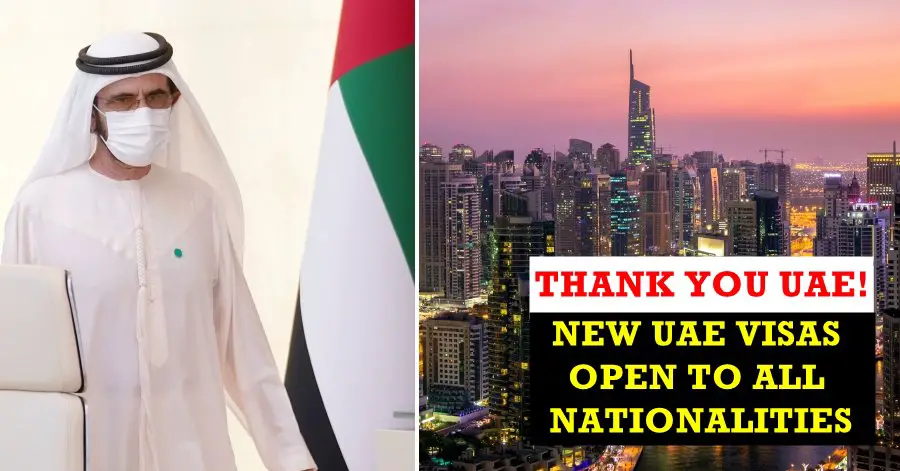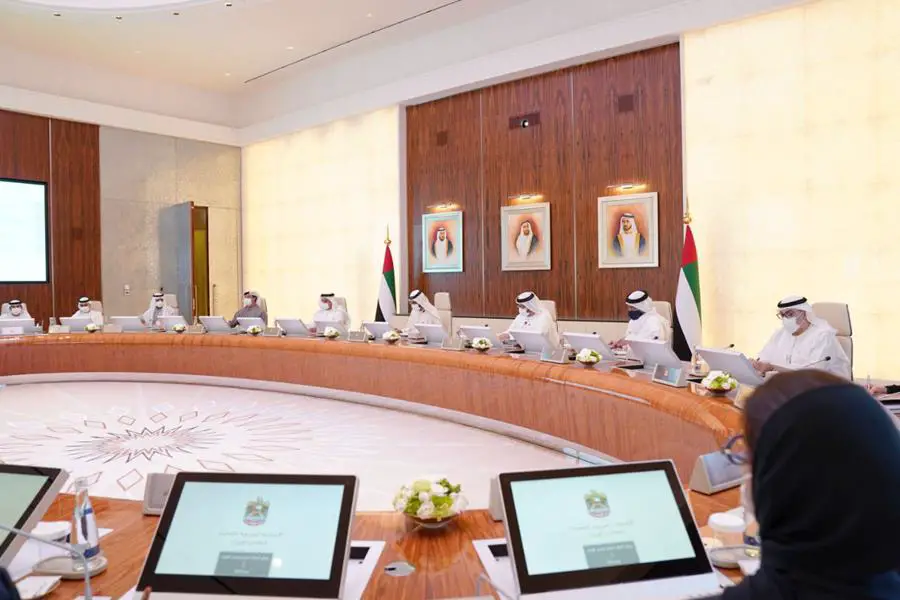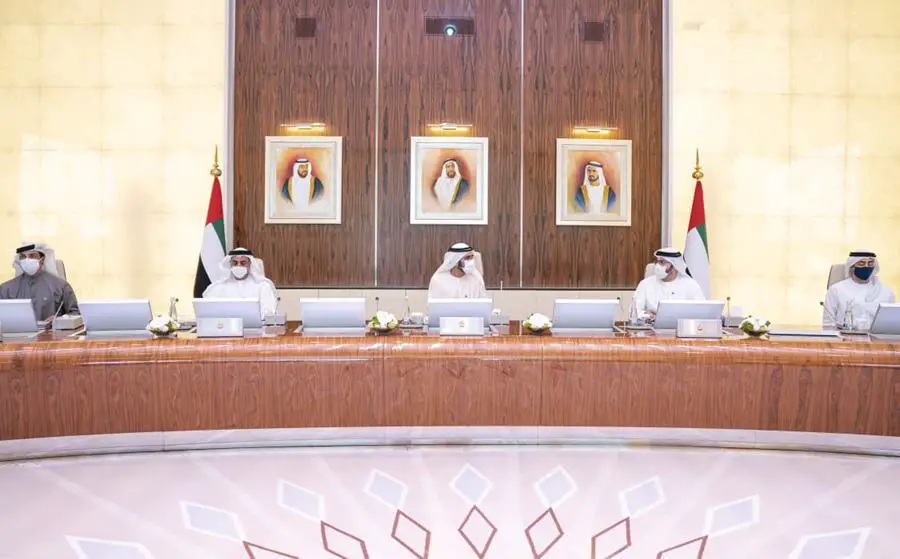Great news! In a recent update, the UAE cabinet adopted a new remote work visa to enable employees from all over the world to live and work in the UAE for one year and approved a 5-year multiple-entry tourist visa for all nationalities.
The new resolutions are among several initiatives approved by the cabinet during a meeting chaired by Vice President and Prime Minister of the UAE and Ruler of Dubai His Highness Sheikh Mohammed bin Rashid Al Maktoum, to position the UAE as an ideal work and tourist destination.

The meeting was held in the presence of H.H. Lt. General Sheikh Saif bin Zayed Al Nahyan, Deputy Prime Minister and Minister of the Interior, and H.H. Sheikh Mansour bin Zayed Al Nahyan, Deputy Prime Minister and Minister of Presidential Affairs.
His Highness Sheikh Mohammed bin Rashid Al Maktoum tweeted, “During a cabinet meeting I chaired, we approved a new Remote Work Visa that enables employees from all over the world to live and work remotely from the UAE even if their companies are based in another country.”
He added, “We also approved a multiple entry tourist visa for all nationalities to strengthen the UAE’s status as a global economic capital.”
During a cabinet meeting I chaired, we approved a new Remote work Visa that enables employees from all over the world to live and work remotely from the UAE even if their companies are based in another country.. pic.twitter.com/Hyp8HU8T6r
— HH Sheikh Mohammed (@HHShkMohd) March 21, 2021
His Highness Sheikh Mohammed bin Rashid Al Maktoum reaffirmed that the government continue developing flexible programmes and initiatives to place the UAE as one of the world’s best governments to provide services, and offer the best quality of life for citizens and residents.
He noted, “We are working with clear objectives to boost our economic status globally and provide the best quality of life to our citizens and residents. Our journey of development endures.”
What is the UAE Multiple Entry Tourist Visa?
Validity: 5 Years – Multiple Entry (can stay up to 90 days per visit which can be extended to another 90 days)
Sponsor: Self-Sponsorship
Purpose: Allows ALL nationalities to visit the UAE.
A new Multiple Entry Tourist Visa can now be issued for all nationalities, in a step that aims to facilitate the process for tourists and visitors. The five-year visa enables tourists to enter multiple times on self-sponsorship and remain in the country for 90 days on each visit, which can be extended for another 90 days.
What is the UAE Remote Work Visa?
Validity: 1 Year
Sponsor: Self-Sponsorship
Purpose: To enable employees from all around the world to remotely work in the UAE.
The Remote Work Visa aims to attract talents and expertise from all over the world, the UAE cabinet approved a new Remote Work Visas scheme to enable employees from all over the world to work remotely from the UAE. The one-year visa allows foreigners to enter the UAE under self-sponsorship and work in line with terms and conditions issued with the visa.
The major step, considered first of its kind in the region, aims to boost the competitiveness of the UAE’s tourism sector and support the national economy. It provides the opportunity for entrepreneurs and talents to innovate in the UAE’s safe and attractive business environment, with access to all the necessary services including world-class utilities and telecoms.
The new scheme aims to support the public and private sector, enhance the work-life balance, boost productivity and improve the business environment. It also enables employees to expand their digital skills and adapt to the emerging gig economy.


On the global sphere, His Highness Sheikh Mohammed bin Rashid Al Maktoum announced that “the UAE has joined the European Bank for Reconstruction and Development and the New Development Bank, established by the BRICS states. Our economic partnerships will continue growing.”
He reaffirmed that the UAE’s development journey continues as changes remain to be taking place to renew and improve government work.
Legislative amendments The cabinet adopted several resolutions to enhance the country’s legislative system including amendments on some provisions of the federal law on Establishing Mediation and Conciliation Centres in Civil and Commercial Disputes and the use of technologies in the judicial system.
His Highness Sheikh Mohammed bin Rashid Al Maktoum noted, “We also adopted legislative amendments regarding the use of digital technologies in judicial procedures and transactions. Justice and legislation are key sectors that must adapt to the rapidly-growing technologies.”
The UAE Strategy for Government Services Among the cabinet’s new resolutions was the UAE Strategy for Government Services that aims to boost the country’s competitiveness in the service sector and position it as the best in the world to provide government services.
The Strategy focuses on five main pillars that will carry out more than 28 initiatives within the next two years to provide advanced and efficient digital services, accessible to customers from anywhere around the clock. Within one year, a single smart platform will provide 90 percent of the UAE’s government services, with aims to bring customer satisfaction to more than 90 percent.
The Strategy aims to establish a comprehensive ecosystem that ensures designing new smart services, building an accurate customer transaction database, and creating a common data-sharing platform for government entities.
The Strategy also seeks to involve the public in designing proactive digital services that cater to their needs, besides empowering national cadres to lead the future service sector and provide an effective government experience.
Water and Energy Demand Management Programme The UAE cabinet approved a national water and energy demand management programme and a new system for hydrogen fuel-powered vehicles. His Highness Sheikh Mohammed bin Rashid said, “We approved a national system for hydrogen fuel-powered vehicles and a national water and energy demand management programme to increase the efficiency of the three most energy-consuming sectors (transport, industry and construction) by 40 percent.”